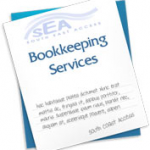Super changes for 2023
Eligibility for downsizer contributions The age an eligible individual can make a downsizer contribution to their superannuation has changed. If your client has reached the eligible age, they (each individual) may be able to contribute up to $300,000 from the proceeds of the sale (or part sale) of their home into their superannuation fund. To make a downsizer contribution; the eligible age is as follows: From 1 January 2023, 55 years old or older From 1 July 2022, 60 years old or older From 1 July 2018, 65 years old or older. Super guarantee If you’re eligible for super guarantee (SG) contributions, your employer must pay the minimum SG contribution based on the current super guarantee percentage of your ordinary time earnings (up to the maximum contribution base). Generally, all employees are eligible for SG. It doesn’t matter if you’re: full time, part time or casual – except that if you’re under 18 years old, you’re only eligible for SG contributions if you work more than 30 hours in a week paid to do work of a private or domestic nature, you’re only eligible for SG contributions if you work more than 30 hours in a week Contractors If you’re a contractor but considered an employee for super […] read more
From 1 July 2022 important super guarantee changes will apply to businesses
 From 1 July 2022, two important super guarantee (SG) changes will apply to business. the rate of SG is increasing from 10% to 10.5% the $450 per month eligibility threshold for when SG is paid is being removed. What this means for you These changes mean from 1 July 2022: you’ll need to make SG contributions at the new rate of 10.5% employees can be eligible for SG, regardless of how much they earn. You may have to pay SG for the first time for some or all of your employees. We’re working with digital service providers (DSPs) to make sure payroll software is updated in time. We are aware of these changes and able to assist you. What you need to do Check that your software is updated to correctly calculate your employees’ SG entitlement from 1 July 2022. If the removal of the $450 threshold means you’ll be paying SG for one or more employees for the first time, you’ll need to give them a Standard Choice Form. If your employee does not provide you with a choice of super fund, review the Stapled Super Fund information on the ATO website for guidance on what you need to […] read more
From 1 July 2022, two important super guarantee (SG) changes will apply to business. the rate of SG is increasing from 10% to 10.5% the $450 per month eligibility threshold for when SG is paid is being removed. What this means for you These changes mean from 1 July 2022: you’ll need to make SG contributions at the new rate of 10.5% employees can be eligible for SG, regardless of how much they earn. You may have to pay SG for the first time for some or all of your employees. We’re working with digital service providers (DSPs) to make sure payroll software is updated in time. We are aware of these changes and able to assist you. What you need to do Check that your software is updated to correctly calculate your employees’ SG entitlement from 1 July 2022. If the removal of the $450 threshold means you’ll be paying SG for one or more employees for the first time, you’ll need to give them a Standard Choice Form. If your employee does not provide you with a choice of super fund, review the Stapled Super Fund information on the ATO website for guidance on what you need to […] read more Federal Budget Special 2022
The Treasurer, Mr Josh Frydenberg, handed down the Federal Budget for 2022-23 on 29th March 2022. In an election year, the focus of Budget was inevitably on pleasing the electorate, with large amounts spent on lower and middle income earners, pensioners and welfare recipients and a 50% reduction in fuel duty all geared towards capturing the votes of “Middle Australia”. For individuals, the centrepiece was the increase in the low and middle income tax offset, which is welcome. People earning up to $126,000 will get a rebate of $420 in excess of what they would have got anyway through the existing tax offset. All you have to do to get it is lodge a tax return for 2021-22 – so funds should start to flow to taxpayers from 1 July 2022. Unfortunately, this is just a short term measure. Next year, the low and middle income tax offset disappears completely – meaning that people earning up to $126,000 will see a tax rise of up to $1,080. It’s hard to see how that will do anything to help cost of living pressures over the medium and long term. Worse, just as most Australians will experience this tax rise, the wealthiest […] read more
Self-managed super funds urged to be careful with property investments
Alert to Self-managed super funds who invest in property without fully understanding their obligations under the law. read more
How superannuation reforms affect individuals and business
The Australian Government is making a series of improvements to super to help protect and grow the savings of all Australians. The first changes applied from 1 July 2012. Individuals To make the most of the improvements, there are a few small things you can do now that can mean big things for your lifestyle in retirement. So take a few small steps to get your super organised. Specifically, as a result of the changes: keeping track of your super will be easier your employer will provide more information about super on your payslip you will have more super for your future Businesses The changes to super mean there will be changes to your super and reporting obligations that you need to start preparing for. If you’re self-employed or have employees, you will need to make changes to the way you pay and report the super contributions you make. In the future, you will have to: provide super information on employees’ payslips progressively increase your super guarantee rate to 12% in annual steps make super guarantee payments for eligible employees 70 years old or older follow the data and e-commerce standard when making super contributions on behalf of your employees […] read more
Keep track of your super contributions
Be aware of how much you can contribute to super can save you money, as there are caps on how much you can contribute before you have to pay extra tax. read more
Key superannuation rates and threshold
These are the key rates and thresholds that apply in relation to contributions and benefits, employment termination payments, superannuation guarantee and co-contributions. read more
Superannuation and unclaimed super
Explains when super may become unclaimed and how you can find it. read more
Superannuation tips for young people
Super is a way of helping you save for your retirement. By saving small amounts of money from now, you can make sure you have enough to live on when you are older. read more


